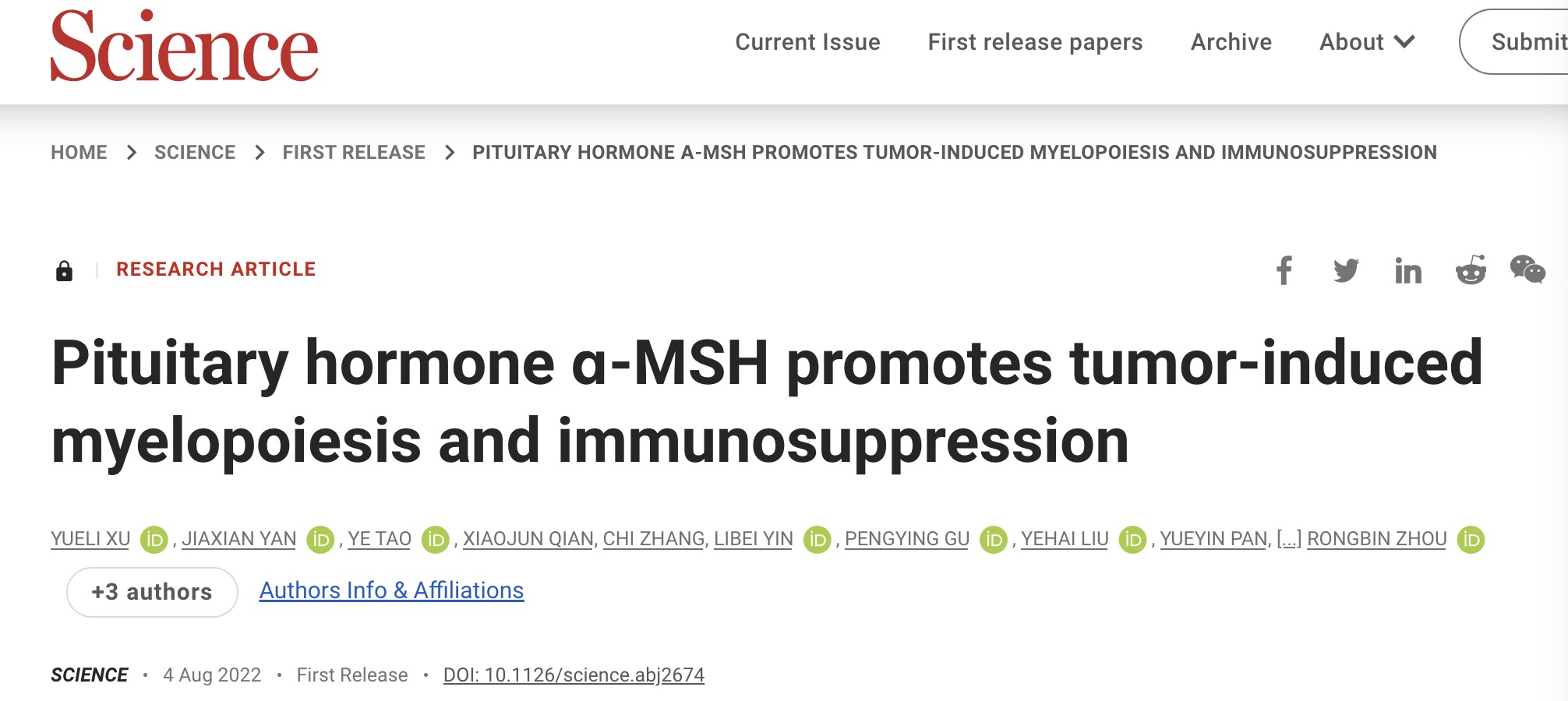
Chinese researchers identify hormone receptor MC5R as a potential target for immunotherapy. /CFP
Chinese researchers identify hormone receptor MC5R as a potential target for immunotherapy. /CFP
Chinese researchers have made a breakthrough in the treatment of cancer via immunotherapy, identifying a particular hormone receptor as a potential target, the University of Science and Technology of China (USTC) said.
The receptor, MC5R, acts with a hormone called α-MSH, which is produced by the pituitary gland, to promote the growth of tumors, according to a paper published in the journal Science on August 4.

Screenshot of published study. /Science
Screenshot of published study. /Science
The finding was made by a team of researchers at the university who were exploring the role of the hypothalamic-pituitary axis in tumor immunity. They examined the levels of various hormones in mice with tumors and found that they had a significantly increased level of α-MSH.
According to the paper, increased levels of the hormone can lead to tumor growth in the human body by promoting myeloid cell accumulation and immune suppression through its receptor MC5R.

An illustration depicting the hypothalamic-pituitary axis' role in tumor immunity. /USTC
An illustration depicting the hypothalamic-pituitary axis' role in tumor immunity. /USTC
The researchers identified MC5R as a possible target for immunotherapy that could provide a means of interrupting the hormone.
According to the university, previous studies have found that patients suffering from long-term depression and stress show more rapid development of tumors and a weakened response to cancer immunotherapy, indicating that the nervous system and its mediated stress reactions play an important role in tumor growth and immune regulation.
(With input from Xinhua)

